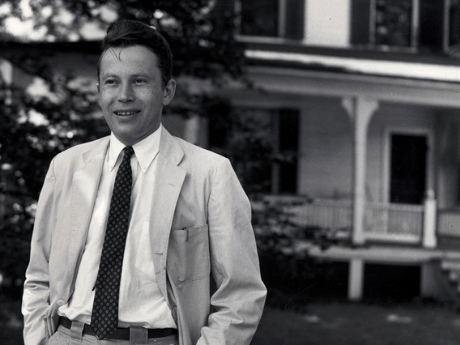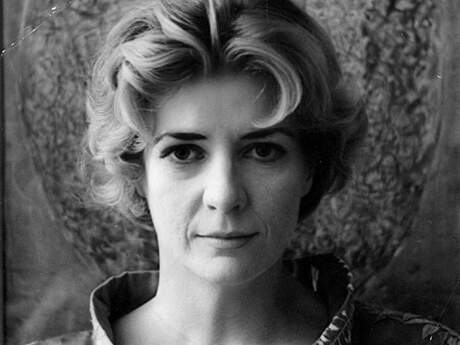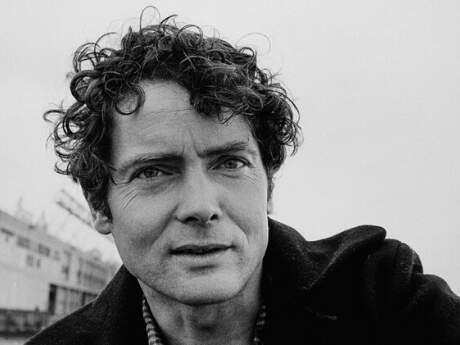First Loves
Richard Wilbur: First Loves

There was no road-to-Damascus moment of childhood or adolescence at which poetry suddenly claimed me, but I took solid pleasure, as soon as I encountered them, in Stevenson's poems for children, and Lewis Carroll's brainy nonsense, and the lyric capabilities of Twain's colloquial prose. There was in my parents' house an anthology called Poems of American Patriotism, and I think that such splendid public poems as Whittier's "Barbara Frietchie" so conditioned me that I would never be able to associate poetry with, for instance, breathy personal confidences in free verse. As soon as I could write, I wrote poems from time to time, and I believe that my first experience of an audience came in fifth grade, when Miss Harrison, reading aloud to the class a poem I had written about Columbus, could not help laughing when she came to my phrase, "over the bilious waves."
During my high-school years, I was drawn in all directions. I played the guitar and sang blues songs, and the ballad of Joe Hill, and all the verses of Frankie and Albert. Every aspect of journalism attracted me, and Mencken was one of my heroes. Dada and Surrealism delighted me then as now. As a cartoonist, I thought I might become another Herriman, or William Cotton, or Fitzpatrick. Amidst all these gravitations—and I was soon to get the further notion, at Amherst, of becoming a critic and scholar—I read poetry and sometimes wrote it. I had Frost's Selected, and volumes of Eliot and Joyce, and when I was sixteen my grandmother gave me, by request, Hart Crane's Collected Poems. In college, I met up with Milton and much else.
But it was World War II, and my two years' service abroad as a signalman in the 36th Infantry Division, which simplified me. Poetry is the universal art of soldiers, because it can be done in foxholes and in the head. During my time overseas, every issue of Stars & Stripes contained a "Puptent Poets" column which drew on the better or worse inspirations of thousands of G.I.s. I carried in my musette bag, at one time or another, Tennyson, Hopkins, Poe, and some poetry pamphlets from New Directions. I found also that I carried a slew of poems in my memory, and that they spoke out more powerfully now, giving shape and an utterable sense to the world. Amidst those voices I began to hear my own.
Originally published in Crossroads, Fall 1998.
More First Loves
Carolyn Kizer: First Loves
Coached by my parents, I learned to read before I started school at age five and a half. My mother, who kept meticulous notes on my reading, somehow omitted Gertrude Stein, whose poem "Grass" was the first I learned by heart:
W. S. Merwin: First Loves
One great stroke of luck for me, as I came to realize much later, was growing up hearing poetry read aloud from the Bible after breakfast—my parents reading to us, that is, before my sister or I had learned to read. The practice never developed much momentum, and it tailed off like the keeping of most journals, but it left in my ear the sound of my mother's voice (I knew my father's from church) reading psalms. The voice was the same that she used for everything but it was refracted by this remote, resonant, lingering language. I loved that more than I knew at first.


